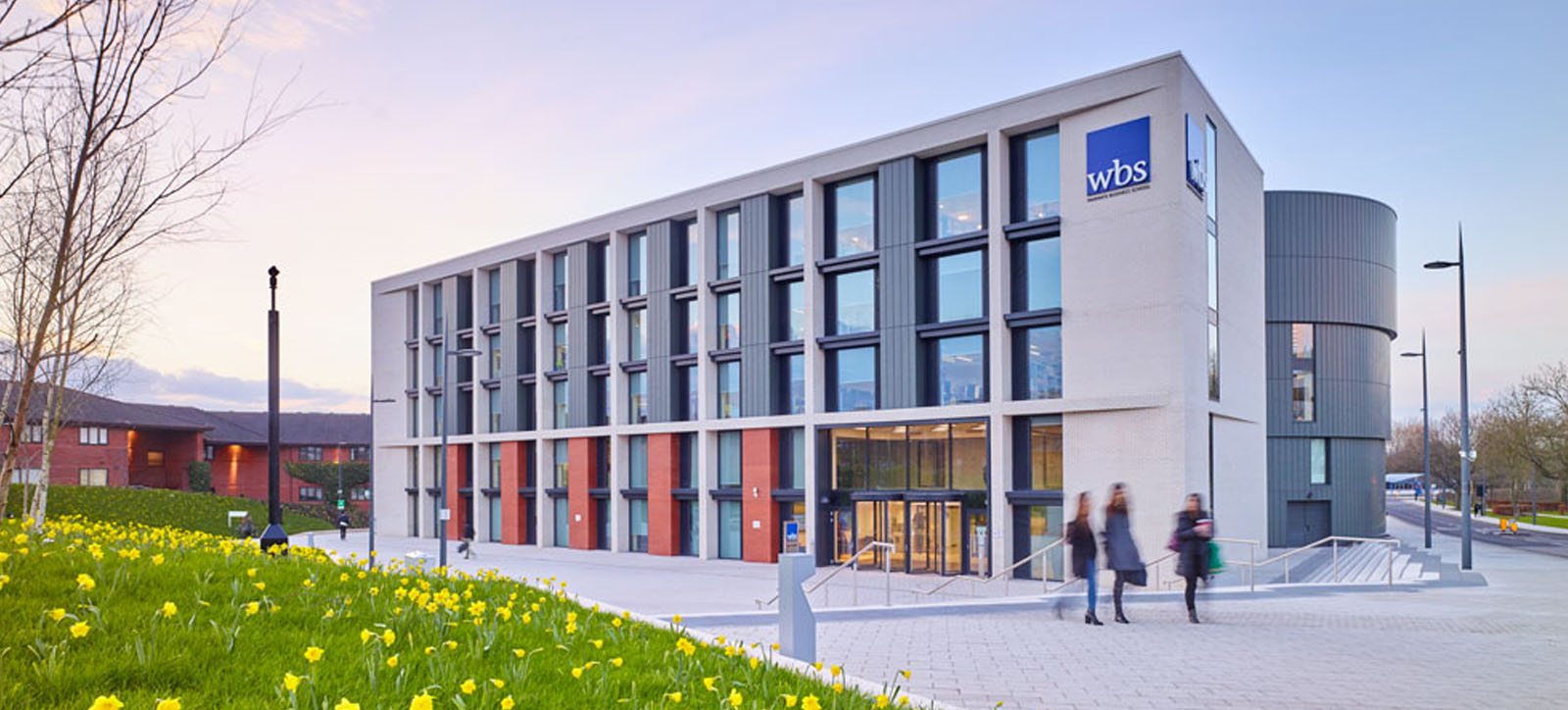
Warwick Business School has been ranked fifth in the country for its research by the Times Higher Education after it analysed the UK’s Research Excellence Framework results.
The Research Excellence Framework (REF) is the country’s system of assessing the quality of research undertaken by universities, with 157 higher education institutions assessed.
Universities are divided into Unit of Assessments with WBS submitting under Business and Management and a strong performance across the board once again proved that it is among the country’s top business schools for cutting edge research that has real-world impact.
The Times Higher Education also ranked WBS fourth for research environment, while 93 per cent of the school’s research outputs were rated ‘world-leading’ or ‘internationally excellent’.
The School’s REF submission involved 158.15 full-time equivalent research-active staff and included staff from the University of Warwick’s Institute of Employment Research. The submission comprised of 365 research outputs such as papers in peer-reviewed academic journals, nine impact cases demonstrating the ‘real-world’ influence of the research and a 15,000-word statement on the research environment.
Andy Lockett, Dean of WBS and Professor of Entrepreneurship and Strategy, said: “I am delighted that Warwick Business School has been ranked fifth in the REF 2021 exercise by the Times Higher Education. This is testament to all the hard work and dedication of our academic and professional services staff; and reflects the world-class quality of our research outputs, impact and environment”.
“The strong REF result follows the recent QS world ranking of universities by subject, which saw the University of Warwick ranked: 21st globally for Business and Management, 36th in the world for Accounting and Finance and 14th globally for Statistics and Operational Research.”
Research environment
Ram Gopal, Pro Dean for Research, Environment & Impact, and Professor of Information Systems Management, said: “This REF result highlights the strength of Warwick Business School’s research environment, which we are looking to improve even further by investing in two new fully-funded PhD programmes.
“The new MRes/PhD Business & Management and MRes/PhD Finance & Economics programmes are fully-funded and combine highly relevant and structured training with close mentorship. They will ensure that WBS continues to attract, and develop, the brightest talent from across the world.”
.png)
All of the research impact cases submitted were assessed as being either ‘world-leading’ or ‘internationally excellent’ and highlight the School’s ‘Change Maker’ ethos as they tackle big societal issues with WBS academics influencing UK Government, national and regional policy, organisational strategy, the public at large and major international agencies.
Research with real-world impact
The impact cases submitted by Warwick Business School included:
Professor Kim Hoque’s research on disabled workers, which has changed UK Government policies relating to 7.9 million working-age disabled people. This includes the Industrial Strategy White Paper, the reform of Disability Confident and the revision of the Public Services Act.
Professor Michael Bradshaw’s research has informed the UK Government’s approach to measuring and managing gas security, informed the debate on domestic shale gas and raised awareness of the geopolitical consequences of energy transformation.
Professor Nigel Driffield’s research contributed to the Greater Birmingham Region attracting record levels of inward investment and underpinned a successful bid for £1 billion of growth funds for Birmingham. He also helped to develop Coventry and Warwickshire Local Enterprise Partnership’s reset strategy post COVID-19.
Professor Graeme Currie and colleagues’ research produced evidence-based change in frontline NHS services, benefitting staff and patients in maternity, musculoskeletal disease, mental health and cancer services.
Professor Loizos Heracleous’s research with NASA has contributed to its management strategy, helping the space agency to become more adaptive and informing a major change programme at the Johnson Space Centre and NASA headquarters.
Professor Stephen Roper leads the Enterprise Research Centre whose research has shaped business policy initiatives, guided the UK Government’s allocation of innovation funding and improved understanding of what drives performance and productivity in small and medium-sized enterprises (SMEs).
Professor Nick Chater and his WBS colleagues helped to increase the use of behavioural science to create better outcomes for people and society. His research underpinned a long-running BBC Radio 4 series, The Human Zoo, and informed the work of the UK Government’s Behavioural Insights Team.
Further reading
Graeme Currie, Change Makers: REF results reveal the economic and social impact of WBS research
Michael Bradshaw, How will Russia's war in Ukraine affect energy supplies and the planet?
Nigel Driffield, What is the key to levelling up the UK economy after Brexit?
Stephen Roper, How did the COVID-19 pandemic affect mental health in the workplace?
Kim Hoque, Will working from home help disabled employees overcome disadvantages?
Loizos Heracleous, How have open innovation and 'pirates' transformed NASA for the 21st century?
Nick Chater, What have we learned from communicating behavioural science?
Graeme Currie, How do we improve outcomes for care leavers?
For more articles on WBS research with impact, sign up to Core Insights here.




 X
X Facebook
Facebook LinkedIn
LinkedIn YouTube
YouTube Instagram
Instagram Tiktok
Tiktok